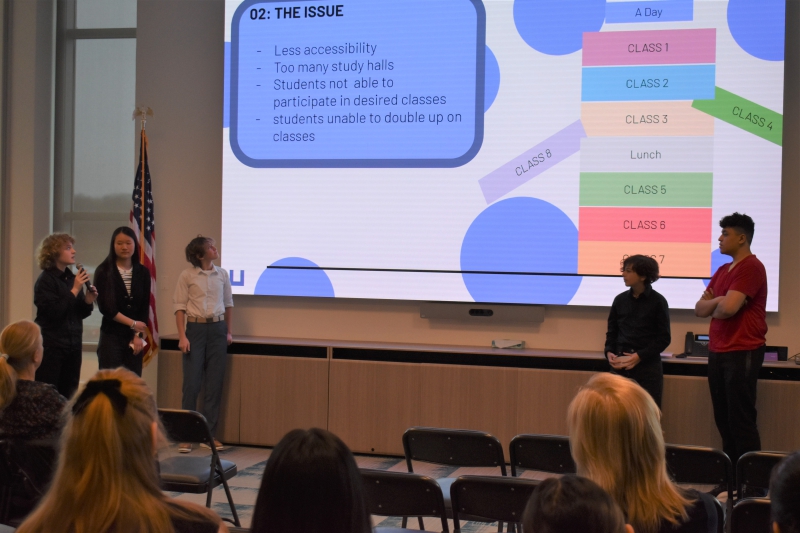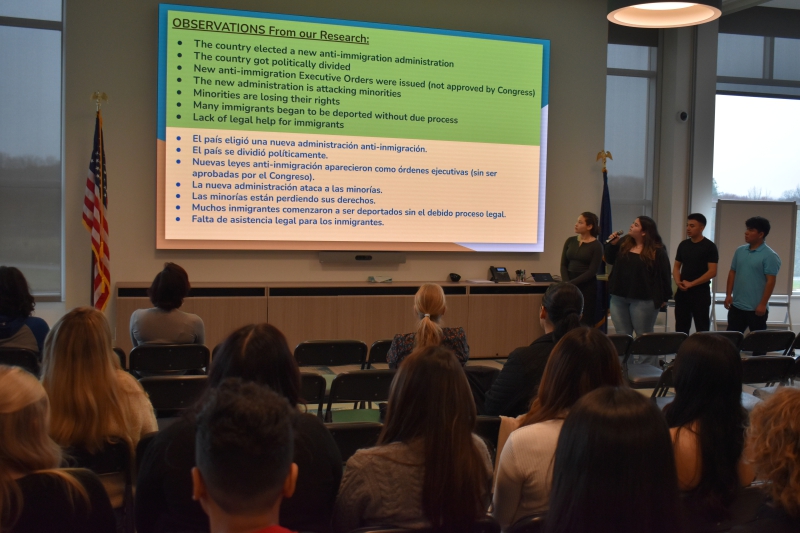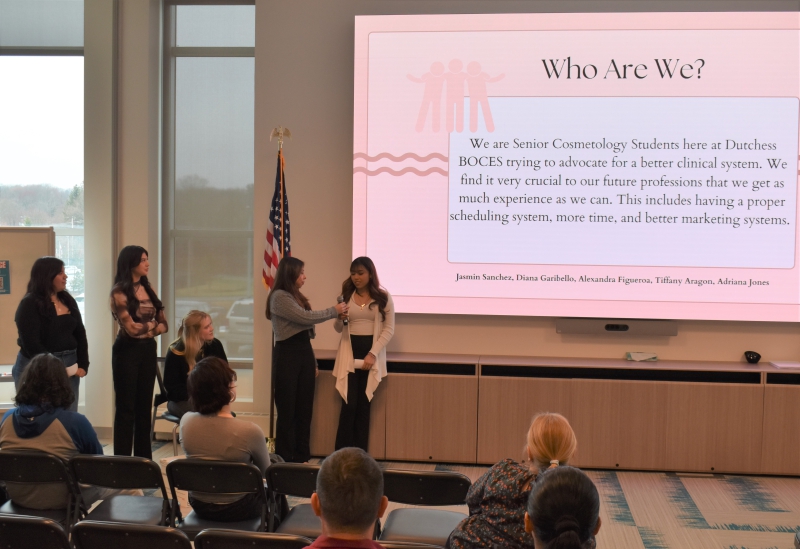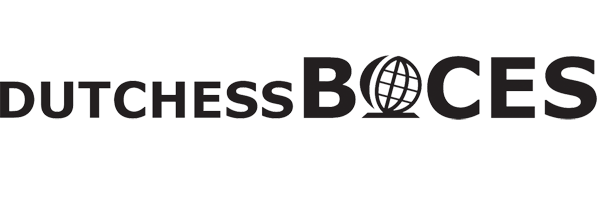
Audience members had a chance to provide feedback to students on how to improve their ideas as the work does not end on presentation day, BOCES’ Educational Resources (ER) professional development specialist Cara Braun told the audience.
“This is not the end of the process,” Braun said. “We want to make sure that they come back to your districts and that this opens the door for communication within the community and the district to potentially make changes.”
Rhinebeck High School sophomore Thomas Penepent worked with his fellow students about proposing a different schedule where students could take asynchronous, or pre-recorded classes, by choice, to free up study hall space. The presenters noted that some teachers already record lessons, allowing students to make up work.
“The current schedule has many conflicts with certain classes; many people just can’t fit in all the classes they want,” Penepent said. “This doesn’t need to be implemented in everyone’s schedule, it’s definitely something that is a choice to all students if they need to take a course.”
After receiving helpful feedback from both the presentation audience and others, Penepent and his team will refine some details and present their idea to Principal Edwin Davenport. He added that taking the time to develop ideas has been beneficial.

Pawling High School senior Marlene Ruiz worked with her group to make immigration resources more readily accessible for students and the community, as there is currently very little available and much misinformation. Audience members gave Ruiz’s group feedback that they should include more background information surrounding immigration.
“Sometimes, especially when presenting, you forget that other people don’t know as much about the topic as you do,” Ruiz said. “Providing more background on our research definitely will help us in the future.”
A focal point of the project was to give the community the tools to advance the cause for themselves. Ruiz added that being proactive about an issue could potentially help someone else.
“While the work might not continue from us it really helps for the community themselves to become educated and then they could educate others,” Ruiz said. “Our project was more like a starting point.”
CTI cosmetology students seek to offer services at BOCES
 Second year cosmetology student Diana Garibello and her classmates advocated for more clinical hours to practice hair techniques on willing participants rather than the mannequin heads students typically work with.
Second year cosmetology student Diana Garibello and her classmates advocated for more clinical hours to practice hair techniques on willing participants rather than the mannequin heads students typically work with.
“Mannequins are way different than actual people’s heads,” Garibello said. “We’ve never had real experience with doing a whole head of highlights or hair color … that’s usually what people ask for at salons.”
Having a clinic on campus would make it easier for students to access work-based learning opportunities.
The students received much positive feedback, including offering hair styling for high school students attending proms and complimentary haircuts and $10 coloring jobs for college students and senior citizens. The next step for Garibello and her classmates is to figure out scheduling and giving people a chance to book an appointment with specific students, so everyone gets a chance to practice.
“Hopefully we get to come back and see how it works,” Garibello said. “We do know some juniors, who are going to be seniors next year, so hopefully we’ll get some updates from them.”
